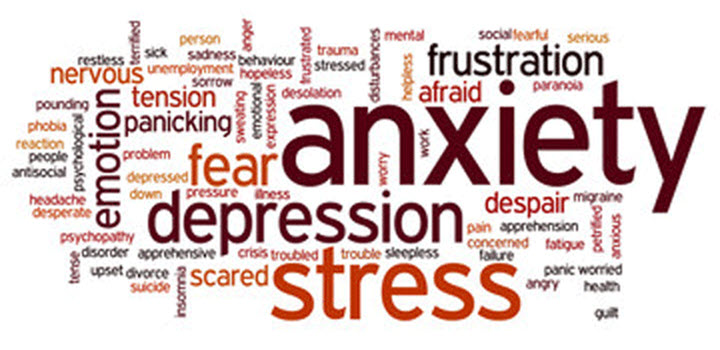
Depression
Depression is both a brain disorder and a state of mind.
The brain is unique—it is the only organ whose function we consciously experience because the brain is the organ of the mind.
Physical symptoms and behavioral changes caused by depression include:
- Decreased energy, chronic fatigue, or feeling sluggish
- Frequently difficulty concentrating or making decisions,
- Recalling pain, aches, cramps
- Gastrointestinal problems without any clear cause
- Changes in appetite or weight
- Difficulty sleeping, waking early, or oversleeping
Emotional symptoms of depression include:
- Loss of interest or no longer finding pleasure in activities or hobbies
- Persistent feelings of sadness, anxiety, or emptiness
- Feeling hopeless or pessimistic, anger, irritability, or restlessness feeling guilty, worthlessness or helplessness
- Thoughts of death, suicide or suicide attempts
Anxiety
Anxiety, or fear and worry, can happen to anyone occasionally, too.
It's not unusual to experience anxiety before a big event or important decision.
But, chronic anxiety can be debilitating and lead to irrational thoughts and fears that interfere with your daily life.
Physical symptoms and behavioral changes caused by generalized anxiety disorder include:
- Feeling fatigued quickly
- Difficulty concentrating
- Recalling muscle tension
- Racing heart
- Grinding teeth
- Sleep difficulties, including problems falling asleep and restless, unsatisfying sleep
Emotional symptoms of anxiety include:
- Restlessness
- Irritability, or feeling on edge
- Difficulty controlling worry, fear, dread, or panic
Stress
Stress is a feeling of emotional or physical tension.
It can come from any event or thought that makes you feel frustrated, angry, or nervous.
Stress is normal, and your body reacts to a challenge or demand.
In short bursts, stress can be positive, such as when it helps you avoid danger or meet a deadline.
But when stress lasts long, it may harm your health.
There are two main types of stress:
Acute stress:
This is short-term stress that goes away quickly.
You feel it when you slam on the brakes, fight with your partner, or ski down a steep slope.
It helps you manage dangerous situations. It also occurs when you do something new or exciting.
All people have acute stress at one time or another.
Chronic stress:
This is stress that lasts for a longer period.
You may have chronic stress if you have money problems, an unhappy marriage, or trouble at work.
Any stress that goes on for weeks or months is chronic.
You can become so used to chronic stress that you don't realize it is a problem.
If you don't find ways to manage stress, it may lead to health problems.